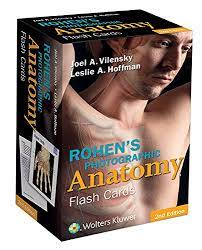What advice would you give to a first year medical student?
Farhin Patel
Congratulations on making it to the first year of medical school!
Your efforts from A-levels, IB, previous degrees and careers have paid off and you are now sitting comfortably in the lecture theatre as the lecturer rambles away using terminology you can barely pronounce. It’s lecture after lecture 9-5 all week plus group projects, posters and assignments. It’s only week one and you’re already 3 weeks behind. There are students asking actual questions but you don’t even know what you don’t know. You might be surprised to hear this but pretty much everyone in your cohort will be feeling the same way. University is a big change from school and you won’t be the only one who is overwhelmed. So…as much as your colleagues will try to hide it, you’ll find that the stress of the new course is the worst kept secret of medical school!
This article will bring you some tips and tricks on how to make your first year of medical school more manageable.
- As cliché as it sounds, time heals all.
The jump between a classroom and a lecture theatre is huge. You are now with hundreds of other students and your ‘classes’ are your lecturer often talking at you for 60 minutes. It can seem difficult to follow and the conflict of whether you should write everything down is never-ending. However, with time you will adjust to the new teaching style and find yourself able to follow better.
2. Pick a learning style for you.
The first year of medical school is all about figuring out what style of learning suits you best. Some people learn best by making notes from lectures, others make flashcards, some annotate slides. Some people find long stretches of studying productive and others pull all-nighters. The trick is to try a few different techniques and see which suits you best.
3. Repetition, repetition, repetition.
Human anatomy, histology and a lot of detailed physiology is a whole new world in medical school and it can be daunting and sometimes feel frustratingly impossible. Some modules like anatomy unfortunately require rote memorisation which means that with enough repetition and review of the material it will eventually stick. Attend the anatomy and physiology laboratory sessions to view the prosections and get the demonstrators to talk you through it; it’s also a good opportunity to ask all of your questions. Make use of flashcards (physical or digital will do!) to review the material at the end of each week and test your friends.
4. See one, do one, teach one…
Form a study group with your friends! According to one paper “social learning can be a source of motivation, accountability, support and well-being”. They say the best way to really know if you understand a concept is to explain it to someone else. In your study groups, each person should try and teach a topic from start to finish in a simplified manner. Not only will this allow you to check your own understanding; it also has the dual-effect of helping out a friend in need. You can also opt to teach smaller topics and quiz your friends. A certain level of camaraderie is needed in medical school and it also makes the whole journey more fun!
5. Recommended resources
There’s a whole host of material for the medical sciences in the library and online but here are some to get you started:
- Rohen
 ’s flashcards for anatomy gives just the right amount of information needed and also has questions you can use to test yourself!
’s flashcards for anatomy gives just the right amount of information needed and also has questions you can use to test yourself! - Wheater’s Functional Histology is a fabulous textbook with lots of images to aid your histology lectures
- Youtube is a fantastic resource that will have short videos explaining the majority of concepts covered in your first year
- Quizlet is a free online tool where you can make flashcards. Sometimes if you type in the topic of interest there may already be a flashcard deck available for use!

And finally, a reminder that even if it doesn’t feel like it now- you will most definitely get a hang of things and find a revision style that works best for you. With time and experience on the course you will work out what techniques are worth keeping and which ones are worth ditching. As tempting as it can be, don’t compare yourself to what other students are doing as everyone’s learning style is different and what works for them (even if they swear by it!) might not work for you.
